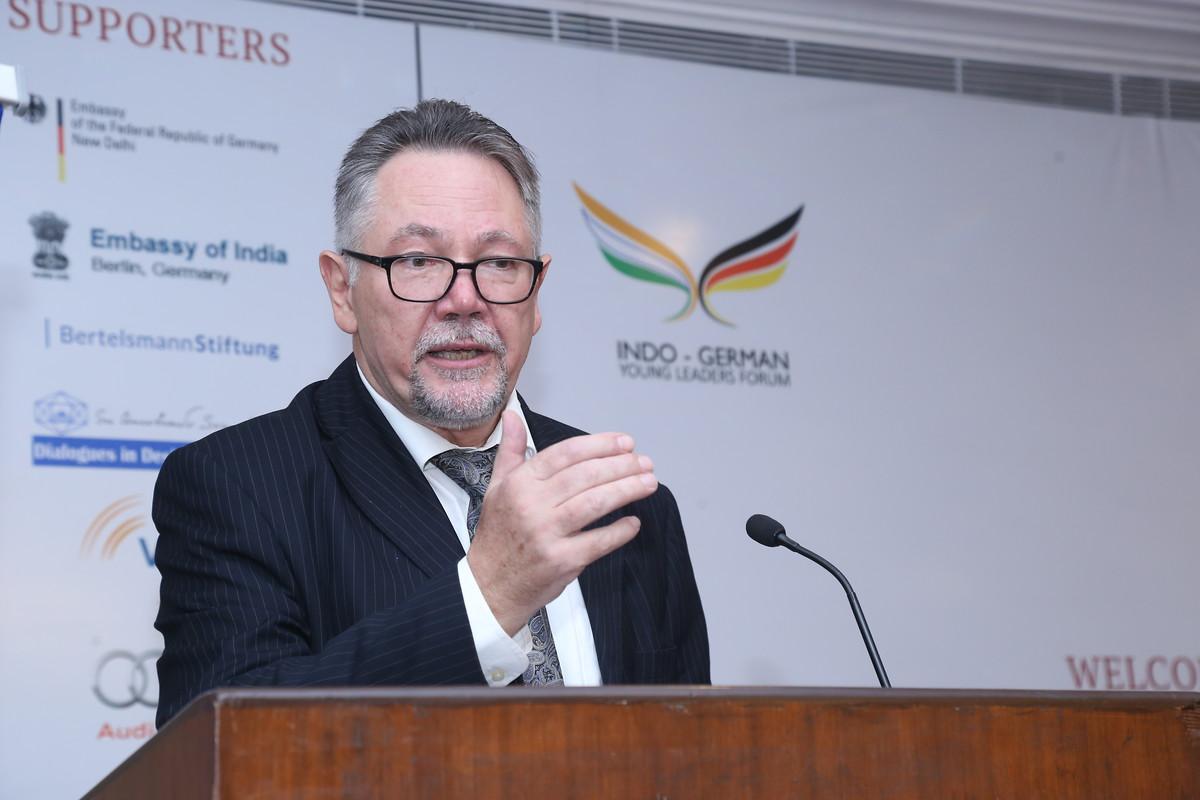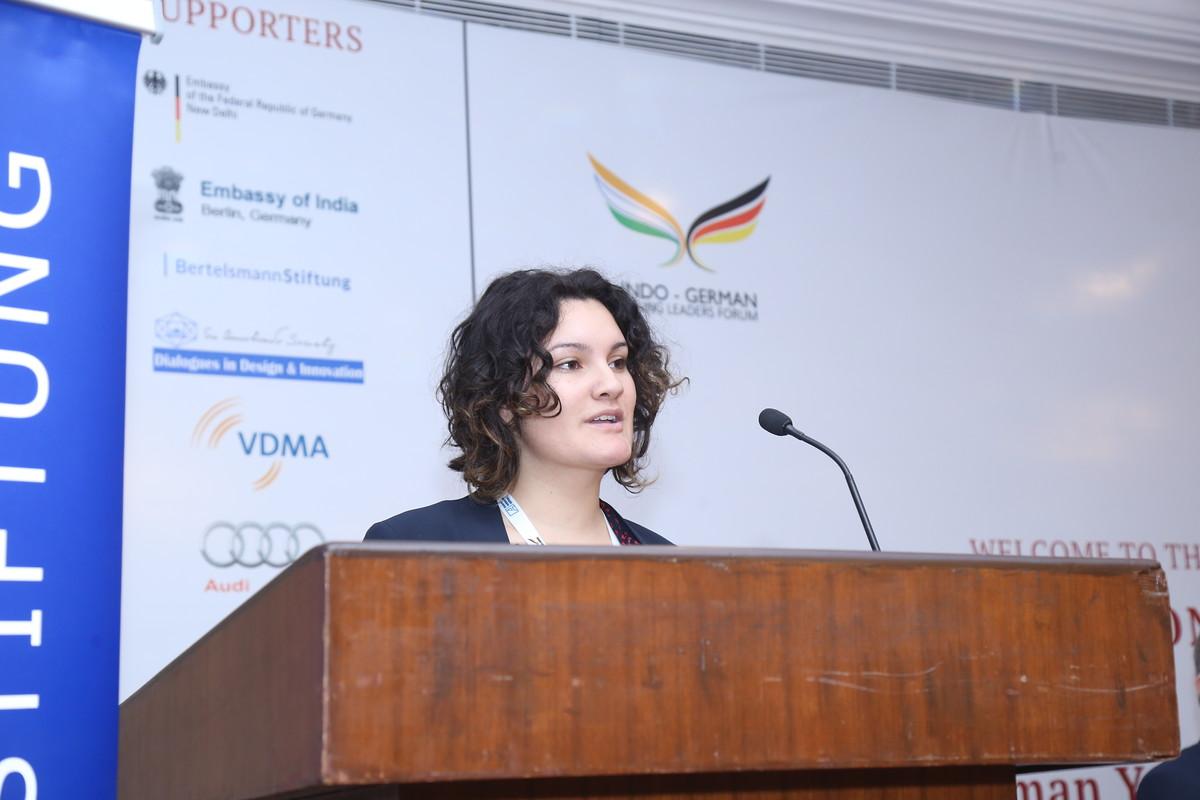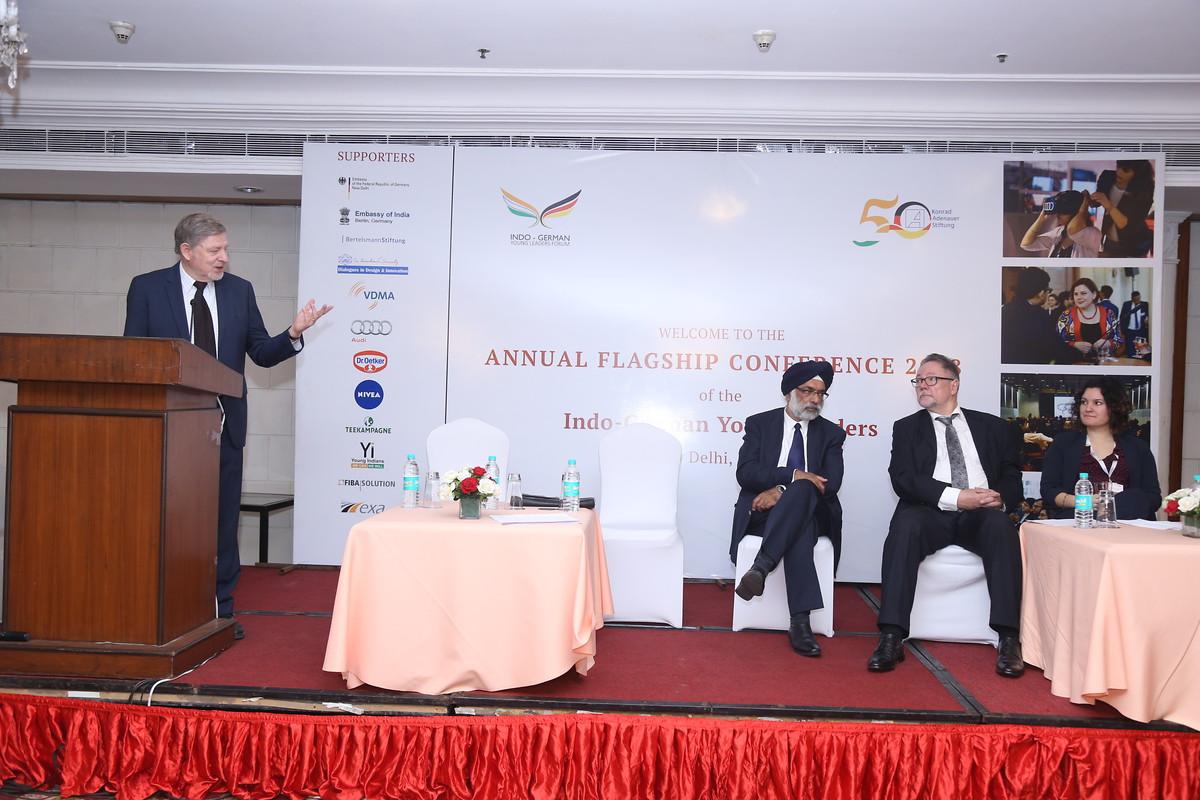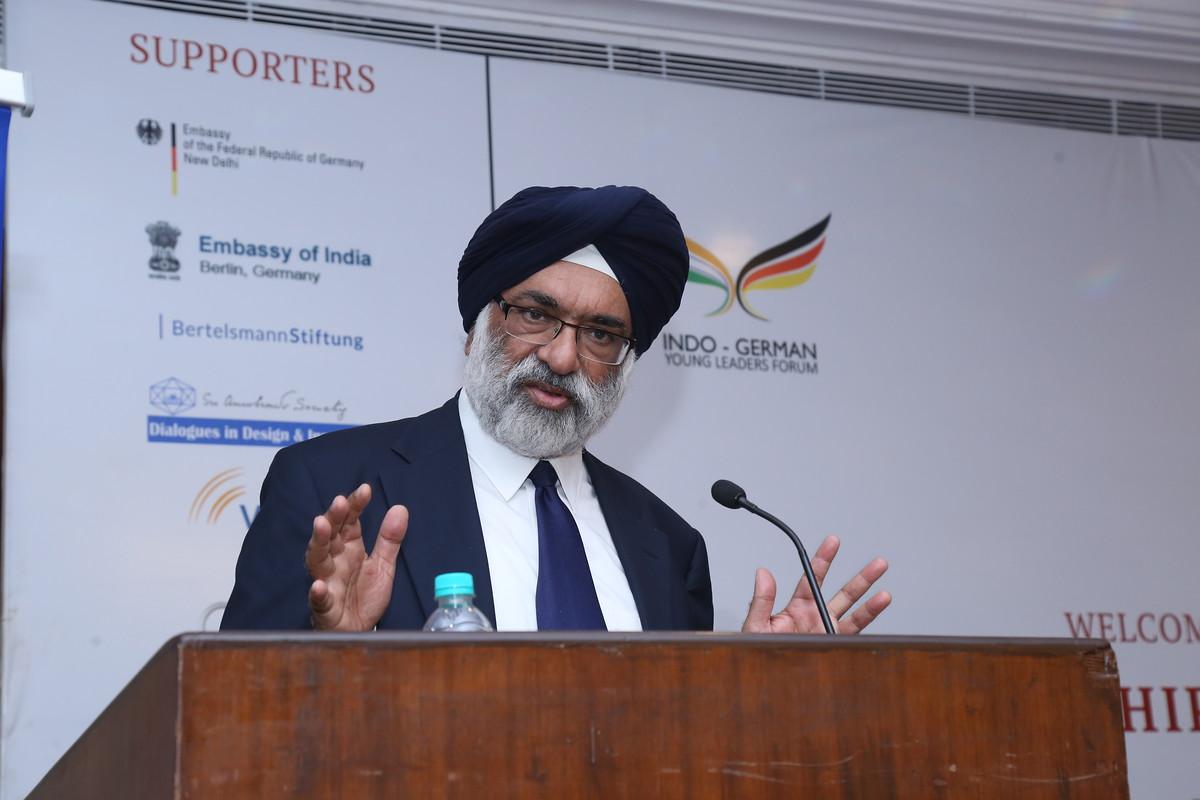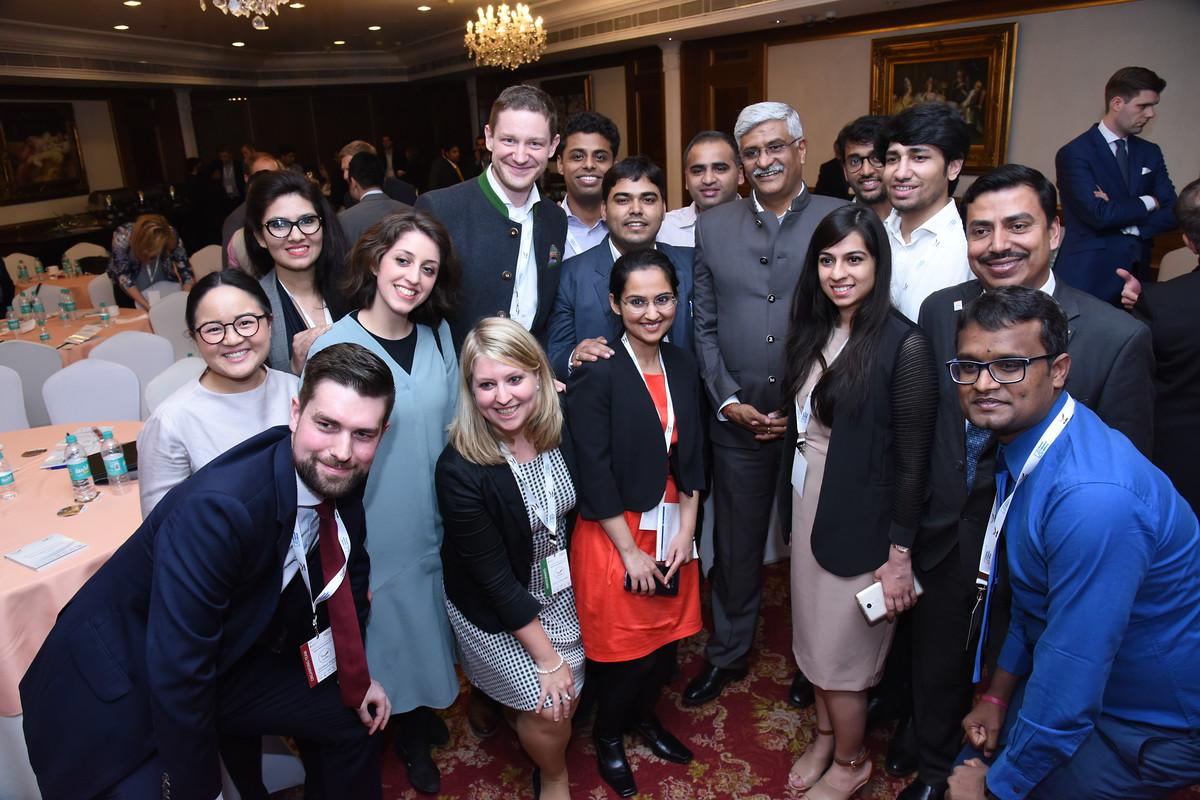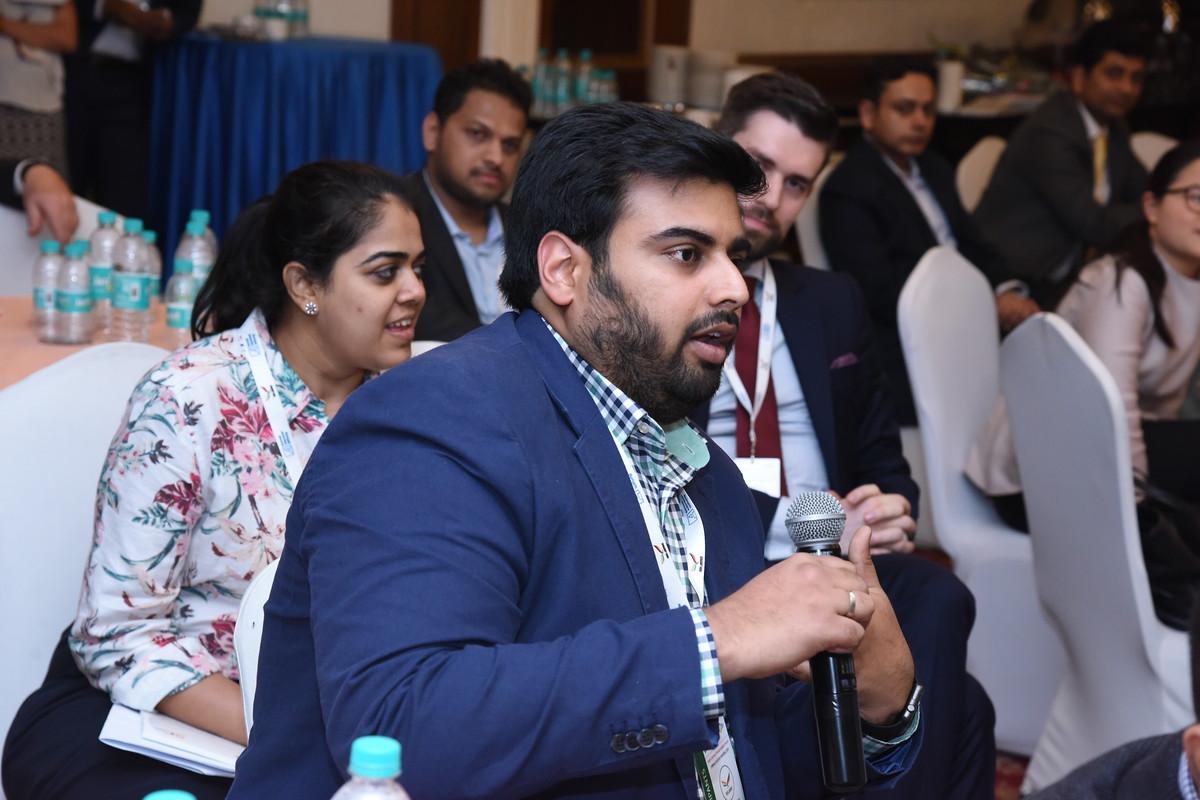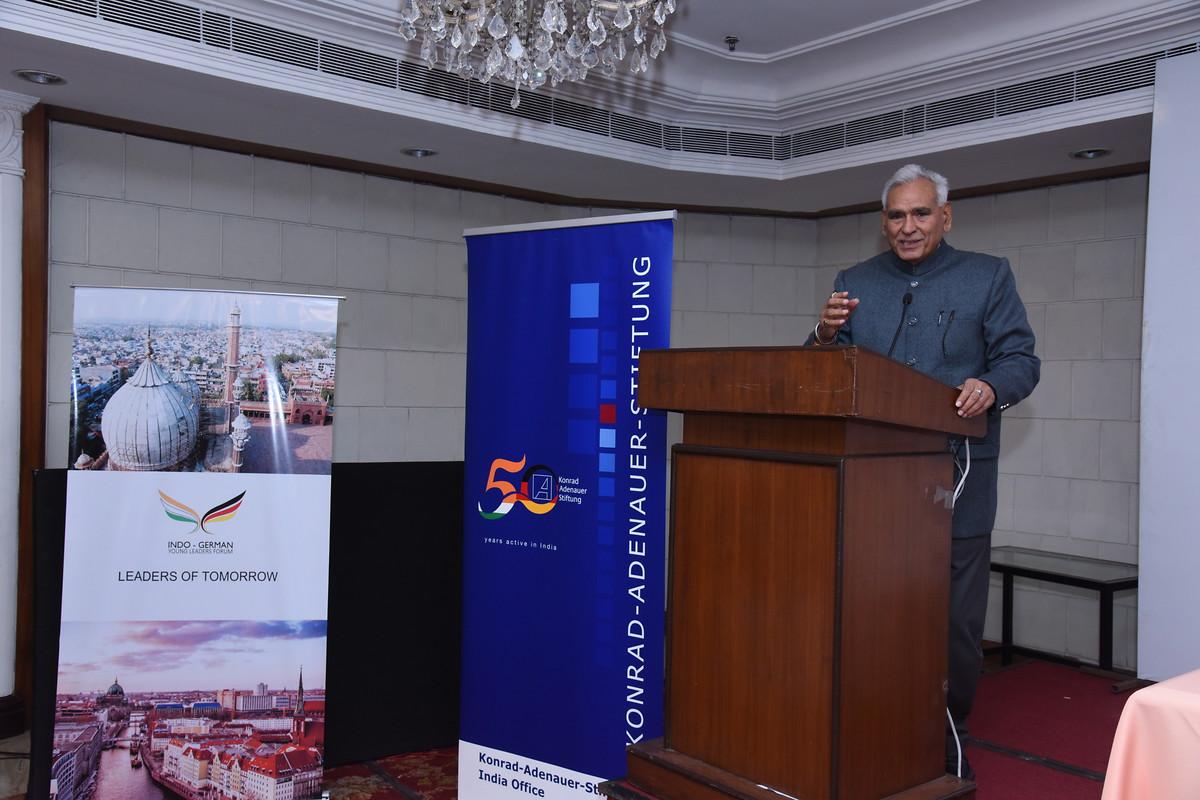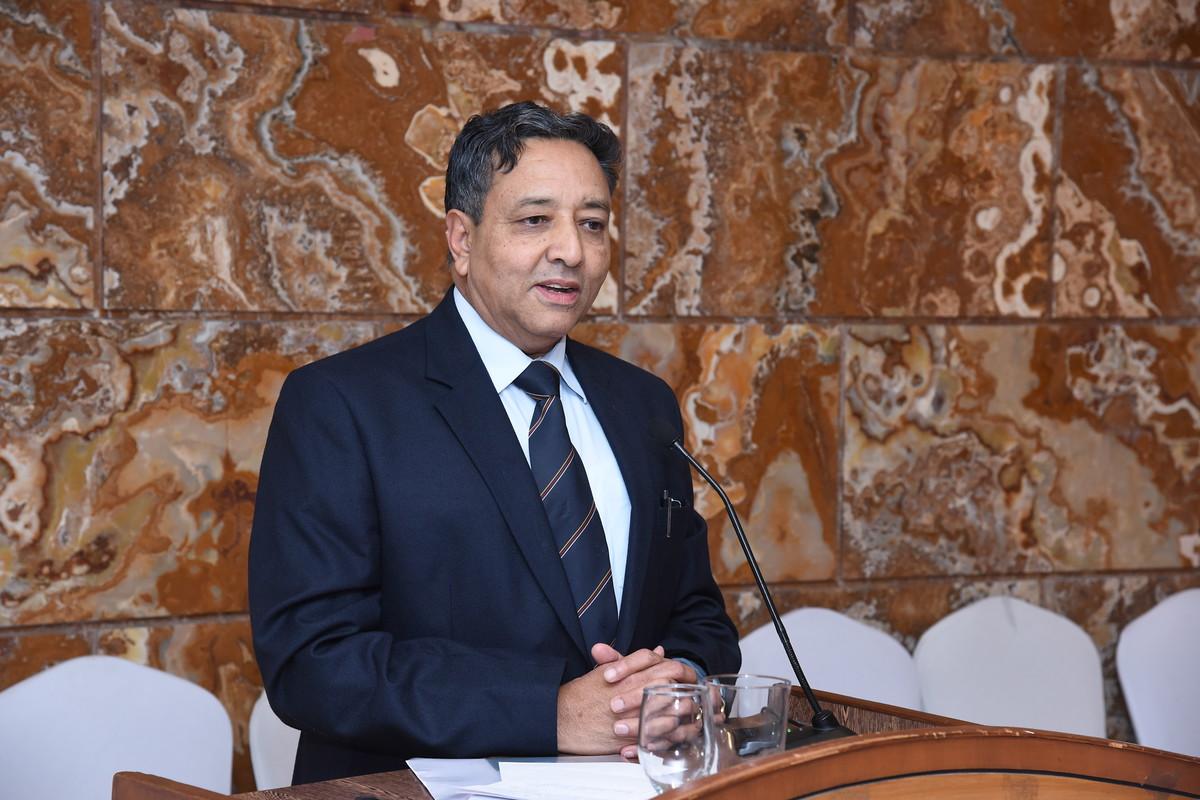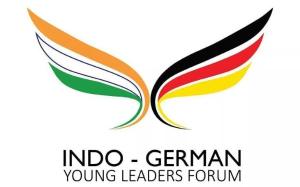Lecture
Details
On February 23, 2018, the India office of the Konrad-Adenauer-Stiftung together with the Indo-German Young Leaders Forum (IGYLF) organized the second day of the annual IGYLF flagship conference in New Delhi. This year brought together more than 60 young Indian and German leaders from various fields to strengthen the relations and understanding between the two countries.
At the beginning of the conference, the two chairmen of the IGYLF, Max von Laer and Dr. Vishnu Ramdeo, emphasied that the event's goal was to contribute to a improved understanding between Germany and India, and thanked the partners of the event. Peter Rimmele, Resident Representative to India of KAS, and Romina Ram, Project Officer at the India Office, pointed out the role of KAS in supporting young leaders. They informed about the global scholarship program, the Konrad Adenauer School for Young Politicians (KASYP) and the KAS Trainee Program which all would offer young people the opportunity to develop their skills and become young leaders.
The former ambassador to India, Bernd Mützelburg, complimented in his speech as to how IGYLF has become a constant in bilateral relations between the two countries. In a Tour d'Horizon he spoke about the current unpredictability and uncertainty of current world situation. In view of this situation, the strategic partnership between Germany and India should aim to "create a shared future in a fractured world." Gurjit Singh, former Indian ambassador to Germany, pointed critically to the further development potential of German-Indian relations. The strategic partnership between the two countries must really become "strategic". Germany should invest more in India's infrastructure sector and also cooperate more closely with New Delhi in the field of defence policy.
Under the moderation of Gaurav Sharma, member of the executive committee of the IGYLF, Prof. Dr. Ummu Salma Bava, Professor at the Center for European Studies at Jawaharlal Nehru University, Dr. Constantino Xavier, Fellow at Carnegie India, Dhruva Jaishankar, Fellow at Brookings India, and Britta Petersen, Senior Fellow at the Observer Research Foundation, discussed about „India and Germany as regional powers in the new global multilateral order“. Among other things, they discussed about the changing world order. While the US seems to be less active in world affairs and loosing interest in shaping the global order, new powers such as Brazil, China and also India would seek more power. By contrast, Europe would not be able to act because of internal crises. The problems facing the world, however, are more complex and difficult to solve than before. India and Germany are not only regional powers, but in some areas global powers, one of the experts explained. Nevertheless, both countries would suffer from a certain degree of lack of self-confidence to shape the world. For the joint cooperation, the experts proposed, among other things, increased cooperation in of international institutions, cybersecurity, anti-terrorism and maritime security. In addition, the two countries should promote the people-to-people exchange.
Gajender Singh Shekhawat, Minister of Agriculture and Farmer Welfare, emphasized in his speech to the young leaders that they are the ones who can make the difference in shaping the world that it will move in the right direction.
The Minister's speech was followed by an interactive presentation of current developments in the field of Industry 4.0. Onkar Ambekar, Head of Data & Advanced Analytics at Bridgestone, explained in his introductory the history of Industry 4.0. Rajesh Nath, Managing Director of the German Machinery and Plant Manufacturers Association (VDMA) in India, moderated the presentation of the case studies. In three exemplary case studies, current developments in Industry 4.0 were presented by Divya Vir Rastogi and Lukas Hofmann for EXA, Gautam Dutta for Siemens and Girish Rao for Harting. Afterwards, the aforementioned discussed with Ramashankar Pandey, CEO and Managing Director of Hella India Lighting, Industry 4.0 and the challenges for Small and medium-sized enterprises. Not only did they point out the difficulties of implementing it for SMEs, but they also made clear that it would be a leverage and an oppurtunity to make the success of enterprises more sustainable in the long term. In addition, the differences in the working cultures of both countries were discussed and the challenges associated with them. The panelists agreed that this may be a challenge, but a good one of which all involved would benefit from.
After the panel discussion, the Minister of State for Consumer Affairs, C. R. Chaudhary, presented the current measures of the Government to promote youth, especially young entrepreneurs. To provide jobs for the steadily growing young population a joint effort by the public and private sectors and the government is required, he stated.
M.L. Kumawat, former director of the Border Security Forces, and Anupam Hazra, a member of the Indian Parliament, emphasized in their speeches at the end of the conference day that the young leaders had not only the responsibility to make in their countries responsible decisions, but also to strengthen the bilateral relations.



